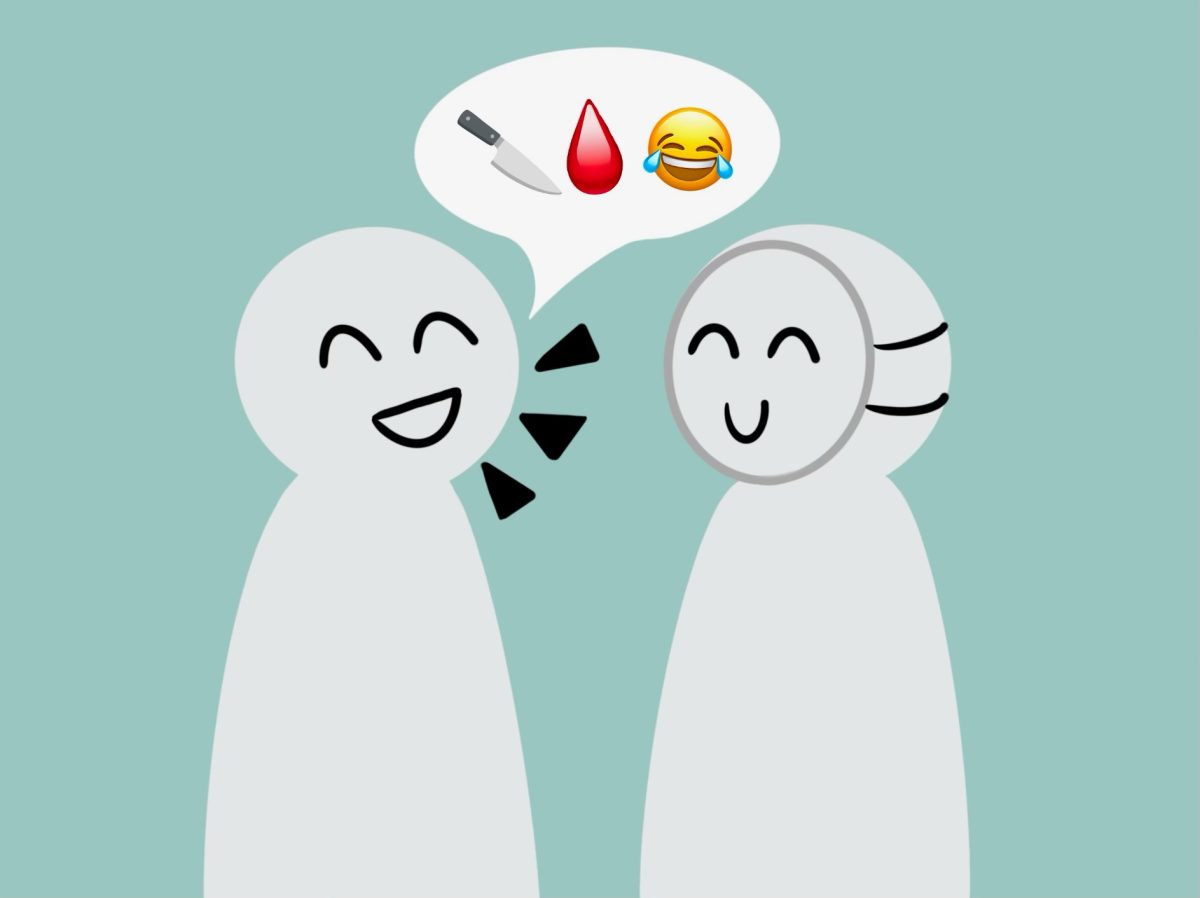It is 9:28 a.m., and the bell just rang for the second-period class change. The day has only started. The class felt hours long. Exhaustion is already building. As my friend approaches me in the hallway, I think of what to say. Out of the numerous topics to converse, will it be, “Going to school makes me want to kill myself?”
As surprising as it may seem, it was the most frequent comment I heard, whether in the hallway, cafeteria, or even outside of school. It is prominent on social media as well. A happy couple can post a video together, and the comments flood with users saying that they will “sleep on the busy highway tonight.”
Why has this become a joke? Living in a community where there have been people who have died by suicide, why would it even cross our minds to make a joke about a tragedy?
Thousands of teens die by suicide every year, and using this phrase knocks down the respect for the people affected by it. It is insensitive and not a laughing matter.
Teen suicide rates have consistently increased. Looking at mental health and suicidal behaviors from 2011 to 2021, 13% of high school girls had attempted suicide, with an additional 30% that had seriously considered it. For male high school students, the suicide rate was 15.15%. Overall, there is an average of 132 teen suicides per day.
In 2021, 30.6%, of young adults between the ages of 18 and 25 experienced a mental, behavioral, or emotional health issue, including illnesses such as anxiety, borderline personality disorder, and post-traumatic stress disorder. That is one in three people.
As the teenage brain develops, we are more exposed to things that we have not experienced before. Depression is the most common mental illness developed in teenagers, but it is commonly misdiagnosed in teenagers. Parents misconstrue it as “teenage mood swings” and “simple unhappiness” when there is a larger underlying issue.
Invalidation of their feelings has been shown to push the students over the edge, sending them into a downward spiral and soon making a big decision too quickly.
Our society has become so accustomed to using mental illness and suicide as a joke, even after tragedy. The more the jokes are thrown around, the more valuable resources are taken away from people who need them.
Humor is a powerful tool that shapes societal attitudes and perceptions. When suicide is joked about casually, it perpetuates stigma and discourages individuals from seeking help. It sends a message that suicidal thoughts or mental health issues are not serious, creating barriers to open communication and support.
They show low-budget anti-suicide presentations at school. Sure, they are outdated, and the script leaves students feeling slight levels of cringe, but there is a reason for showing them. Giggling and laughing at the presentation damages the people who need the resources, and diminishes the purpose of the presentation.
Without these resources, it can make the struggles of a person more intense, raising their chances of possible self-harm.
Telling someone to “kill themself” or commenting that a certain thing “makes them want to die” should never be said as a joke. It not only makes fun of tragedies, but nobody knows what someone is going through.
Words can be harmful even if said good-naturedly, and at times can be used as a possible incentive.
Your life is valuable. Recovery is possible. This is not your forever. There are hotlines available 24/7.
If you are struggling, please text or call 988 to speak with someone from the Suicide and Crisis Lifeline, or call the National Suicide Prevention Hotline at 1-800-273-TALK (8255).
Opinions expressed in editorials are those of the writer(s). These views may not represent the adviser, The Prowler, advertisers/sponsors, the Starr’s Mill High School administration or staff , or Fayette County Public Schools as a whole. Please see our FAQs for more information pertaining to the rights of The Prowler’s staff members.


